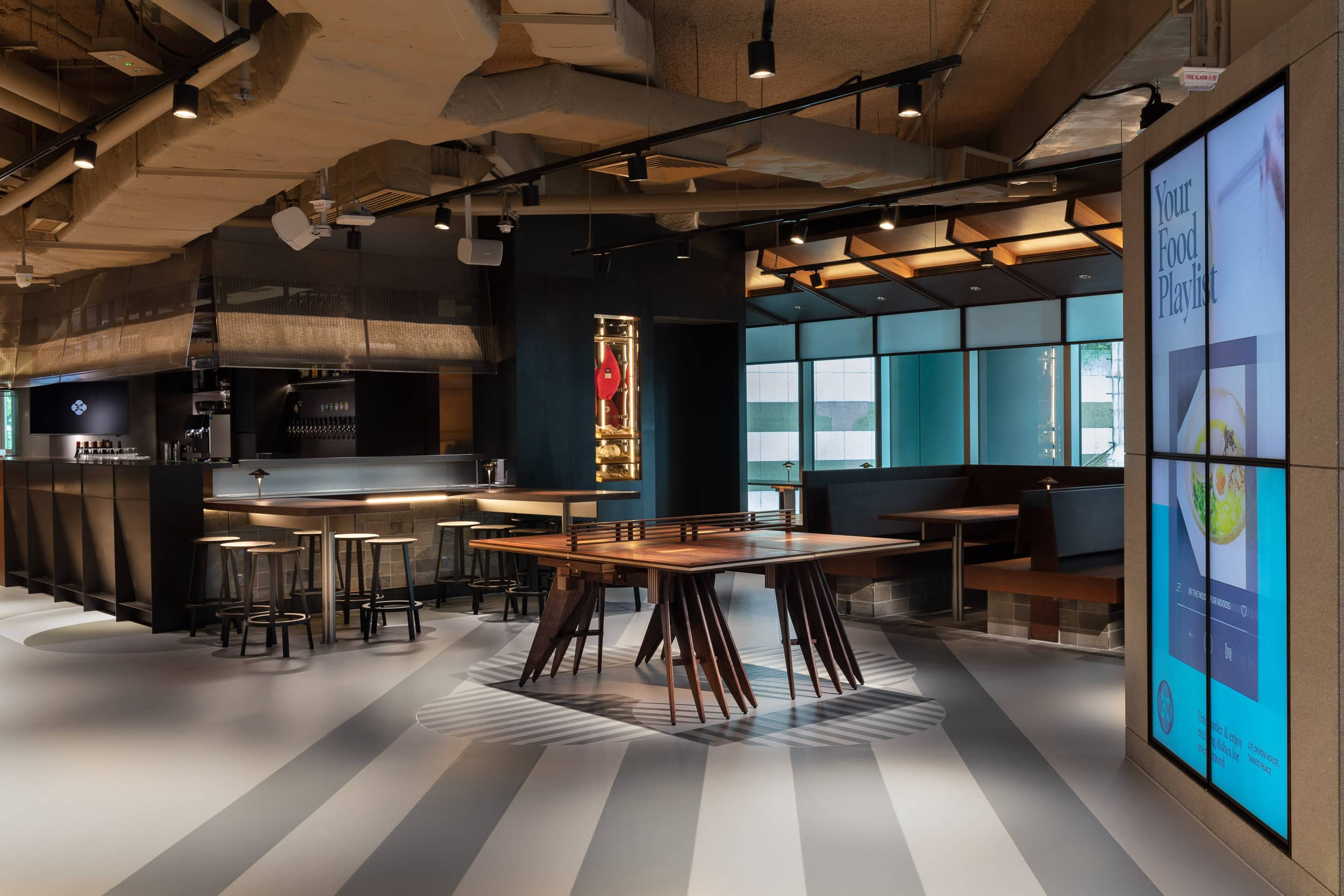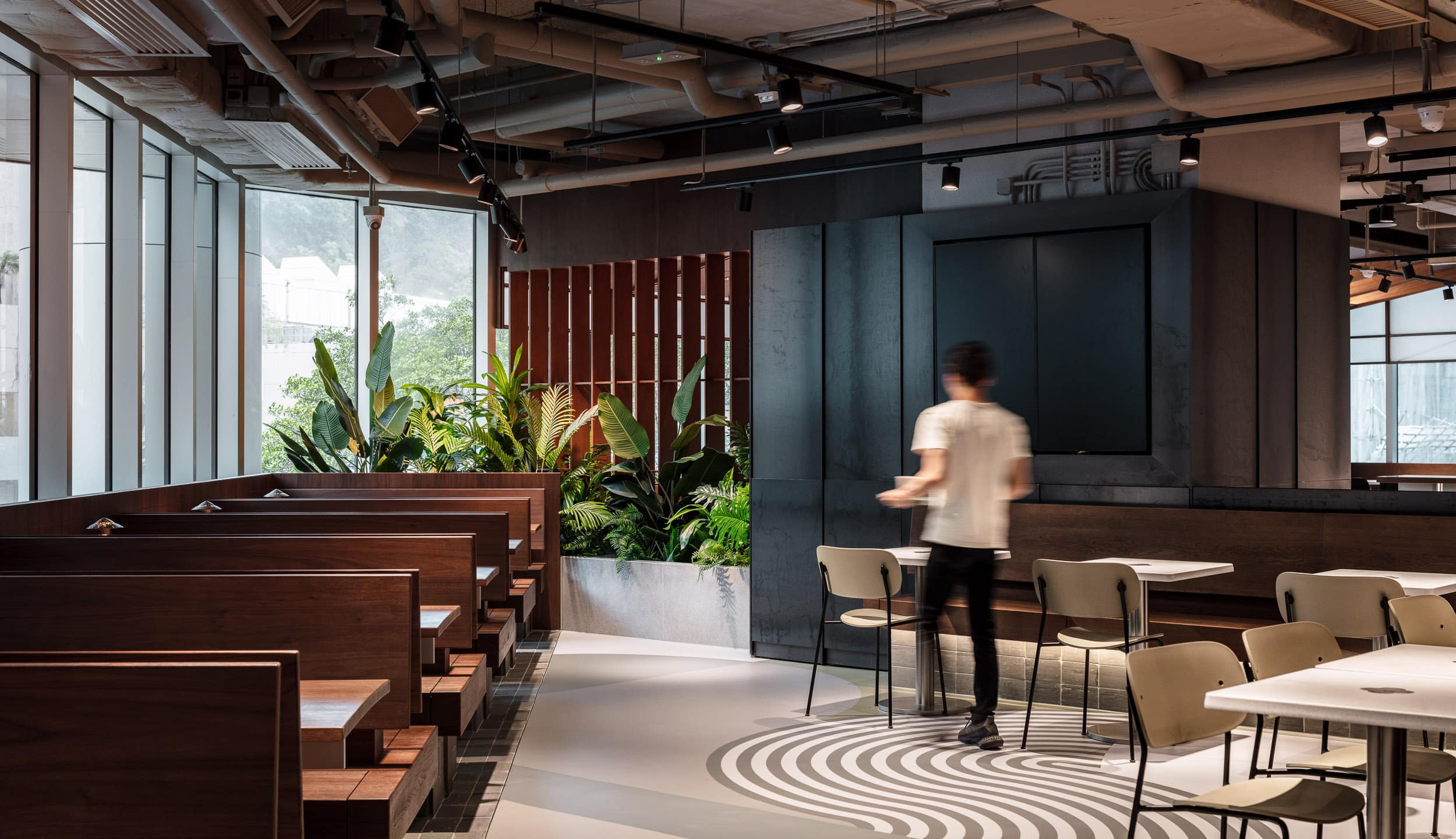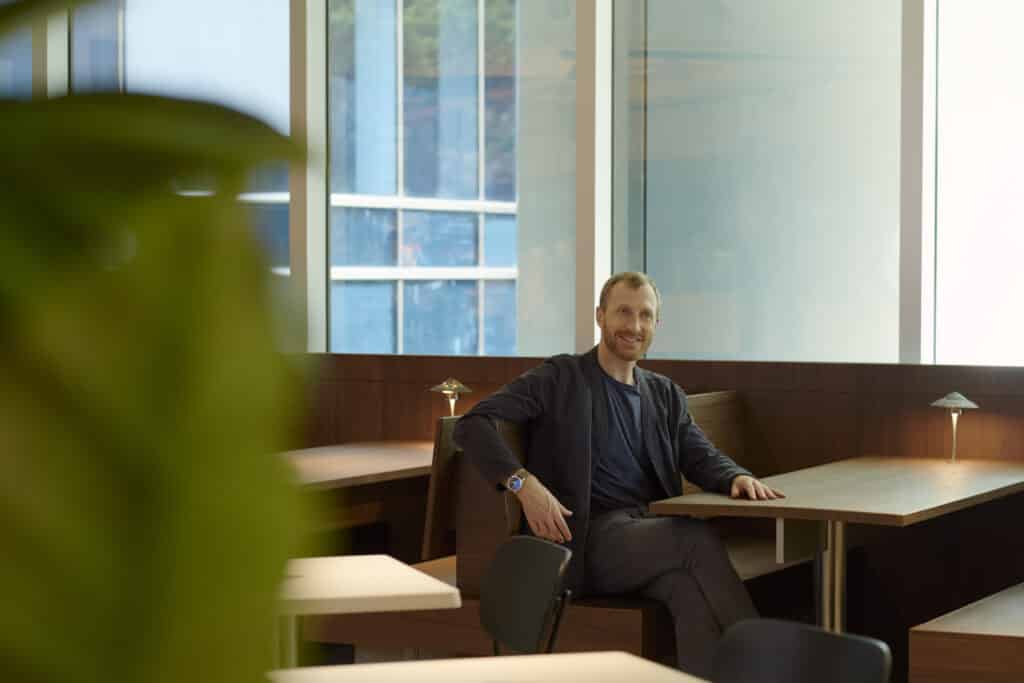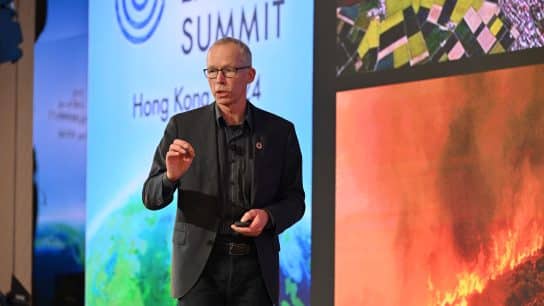In an exclusive interview with Earth.Org, Matt Reid, co-founder and CEO of Hong Kong-based KIN, a 300-seat sustainable food hall and omnichannel food app, explains the idea behind the company and discusses how we can reduce the food industry’s – as well as our own – environmental footprint by changing the way we eat.
—
Climate change is the single biggest threat facing humanity. Climate impacts are already harming communities, habitats, and ecosystems around the world and there is no sign of them slowing down anytime soon. Faced with the harsh reality that global warming will keep bringing devastation in the years to come, many of us can feel overwhelmed by a sense of hopelessness and worthlessness. But as much as the climate crisis is the result of decades of mispractice and reckless human actions, every single one of us has the power to do something about it.
One way to do this is by changing how we eat.
“We need to be eating local, low-carbon impact, humanely. We need to control the amount of waste we generate. We must develop kitchens that are circular, not linear. And, most importantly, we need transparency over what we’re doing,” KIN Founder and CEO Matt Reid told Earth.Org.
The food industry, from production and processing to distribution and consumption, is responsible for a fair share of global emissions. Production alone accounts for about 25% of annual global greenhouse gases released into the atmosphere while transporting ingredients and food products accounts for nearly one-fifth of all carbon emissions in the food system. Not to mention that roughly one-third of the food produced that is intended for human consumption every year – around 1.3 billion tons and valued at US$1 trillion – is wasted or lost. This alone would be enough to feed 3 billion people. But that is not all.
Every day, hundreds of millions of single-use containers, cans, trays, and cutlery are thrown away around the world. Despite being an essential component of the food sector and the only solution we have to facilitate food transportation, food packaging waste is also one of the most harmful aspects of the industry.
You might also like: We Need Sustainable Food Packaging Now. Here’s Why.
Clearly, there is a multitude of challenges that need to be addressed, and changing these dangerous trends will require not only a long time but also a collective commitment from all parties involved. As KIN co-founder and CEO Matt Reid put it, we need a “systemic solution”.
In Hong Kong, Reid is trying to address these issues by completely revolutionising the food industry, with the goal of shaping a concept that can be replicated around the world and inspiring people to make more sustainable food choices. For him, tangible changes can happen by changing the way we eat. However, just like he said, we need to rethink every single feedback loop of the system if we want this to work.
The goal of KIN is not just to push for a change in consumers’ food habits, for example by switching to a plant-based diet or cutting on takeouts to reduce plastic waste. Rather, the concept revolves around the idea of rethinking every single step of running a restaurant, with the ultimate goal of making the whole process as sustainable as possible.
In an exclusive conversation with Earth.Org, Reid explained how he came up with this revolutionary idea, the challenges he faced along the way, and what it takes to make a significant impact.
How Do We Change the Way a City Eats?
Inspired by the vision of creating a movement to change the way people eat and an extensive background in fine dining, Reid decided it was time to deliver Hong Kong’s first real, sustainable, transparent catering system.
“As a restaurant operator myself, I saw first-hand that the food industry is in crisis,” explained Reid, adding that he felt he could do more to address everyday food and not just the elite few that eat fine dining. “After opening over 40 restaurants, I realised that we need to apply what we have learned there to the mass consumption of food.”
I need to not put down my other business so perhaps just felt I could do more and address everyday food not just the elite few that eat fine dining.
Seeing the environmental impacts of running a restaurant or food business, the question inevitably arose: “How do you change the fuel in the existing system?”
The best place to start is by sourcing the most ethical ingredients, taking into account not just their origin but also the environmental footprint linked to their shipping – from packaging to transportation.
KIN’s ingredient charter establishes transparency throughout the supply chain and includes principles that ensure responsible supplier and ingredient selection are not merely based on cost. The company is committed to building relationships directly with the farmers and food producers, allowing them to have conversations about the ingredients’ origin and ultimately increasing transparency and accountability.
In Hong Kong, a city of 7.4 million people that relies on imports for over 95% of its food supplies, the challenge lies in finding the most sustainable, ethical, yet also the closest farmers and food producers to cut on transportation emissions. To tackle this, KIN sources its ingredients responsibly via carbon-mitigated transport and from within the APAC region. For example, the company gets its king salmon and yellowtail tuna from fish farms in New Zealand and Australia, respectively. Sushi, one of KIN’s signature dishes, is produced exclusively with these two types of fish. Both partner farms are BAP and ASC certified, proof that they adhere to a good aquaculture standard that reduces negative impact on the environment.
“Sourcing fish from well-managed farms helps us preserve our oceans,” explained Reid.
Once the ingredients are sourced, the next step is turning them into recipes that not only taste good but also reflect consumers’ choices.
Every week, the team at KIN seeks out various restaurants and chefs from all over Asia to collaborate with. These restaurants entrust KIN with recipes of their signature dishes that in-house chefs recreate using the high-quality ingredients it responsibly sourced. Today, KIN works with 45 brands and has developed more than 200 recipes from a single traceable supply chain.
“If you think about it, fashion has been doing the same thing for years by recreating trendy items,” explained Reid. “The difference is that, if needed, we’ll change the ingredients of the brand’s recipe to ensure the lowest possible carbon impact and the highest level of humanity.”
Located in Taikoo Place, a commercial building complex in Quarry Bay, east Hong Kong Island, KIN extends brands’ reach to more customers through its omnichannel food app and physical space. The location choice is no coincidence. Building a food court in an area that comprises a vertical community of office workers and domestic residents allows the company to reduce food delivery zones, as walkers are solely responsible for deliveries.

At its first flagship ecosystem in Devon House, Taikoo Place, KIN’s expansive space spans 18,000 sq. ft. with 300 seats, a 18-tap bar, and show kitchens. Photo: Dennis Lo.
“We can be the solution to make food for delivery more environmentally friendly by building a network of kitchens we can get to work with delivery platforms,” said Reid.
“We find out what the most popular food brands in a specific area are, we cook these for them and hand them to the delivery person in charge in compostable packaging. This way, they don’t have to travel long distances to reach a specific restaurant or fast food but can instead operate in a more restricted area.”
Another great asset is the KIN Food Halls app. Powered by a learning algorithm that identifies what consumers want the most, the app allows the company to adapt to demand in real time, removing unpopular recipes and thus also avoiding the purchase of unnecessary ingredients.
“Supermarkets put stuff on the shelves that they know consumers and going to buy. We want to do the same but with cooked food,” explained Reid.
If you visited KIN’s 300-seat venue, you would notice that nothing is left by chance. Aside from the food itself, pretty much everything in the building, from furniture to the plates and bowls in which the food is served, is made with recycled and up-cycled materials. Bench surfaces are made with up-cycled circuit boards, tabletops are manufactured from six different types of up-cycled food waste materials, and lamp shades are made from recycled Longjing tea leaves.
Particular attention is also paid to circularity and waste management, with composting rules and return policies for their compostable bowls that benefit the consumer while helping reduce the daily amount of waste. The KIN team is also constantly communicating with its suppliers to ensure that they ship their goods using the least amount of packaging possible.

Photo: Dennis Lo.
The Future of KIN
Recently, KIN has partnered up with Hong Kong’s Chinese International School (CIS), to offer more than 1,400 students a sustainable lunch prepared with healthy, low-emission ingredients.
Reid recently spoke at Hong Kong’s first student-led Sustainable Food Summit, an event co-hosted by a student environmental group at CIS Drop in The Ocean (DITO), The Alliance for Sustainable Schools (TASS), and sustainable food consultancy Grassroots Initiatives that aimed at elevating the conversation about the sustainability of school food.
Marc Briol, a chef at KIN, joined two other chefs to create a sustainable, low-carbon dish suitable for inclusion in a school lunch menu.
Besides schools, the company is looking to partner up with more malls, office buildings, and businesses around the city to ensure that a “reasonable percentage” of the food served at these locations comes from the KIN kitchen. It also plans to join forces with more Hong Kong supermarkets to buy ingredients that are going off or end up not being sold and reduce food waste, which represents about 35% of the territory’s total municipal solid waste.
Moreover, businesses that decide to partner with KIN receive a detailed report at the end of the year with details on the footprint of their orders, a way to raise awareness about the huge impact of choosing more sustainable food options and “engage the whole company in a net-zero strategy, one of the biggest challenges in the sector.”
“If we do that,” Reid said, “we will have sold the original strategy of systematically changing the system.”
Featured image: Capsule48
You might also like: Providing Nature-Based Solutions to Food Loss in Developing Countries: An Interview with Deepak Rajmohan


















